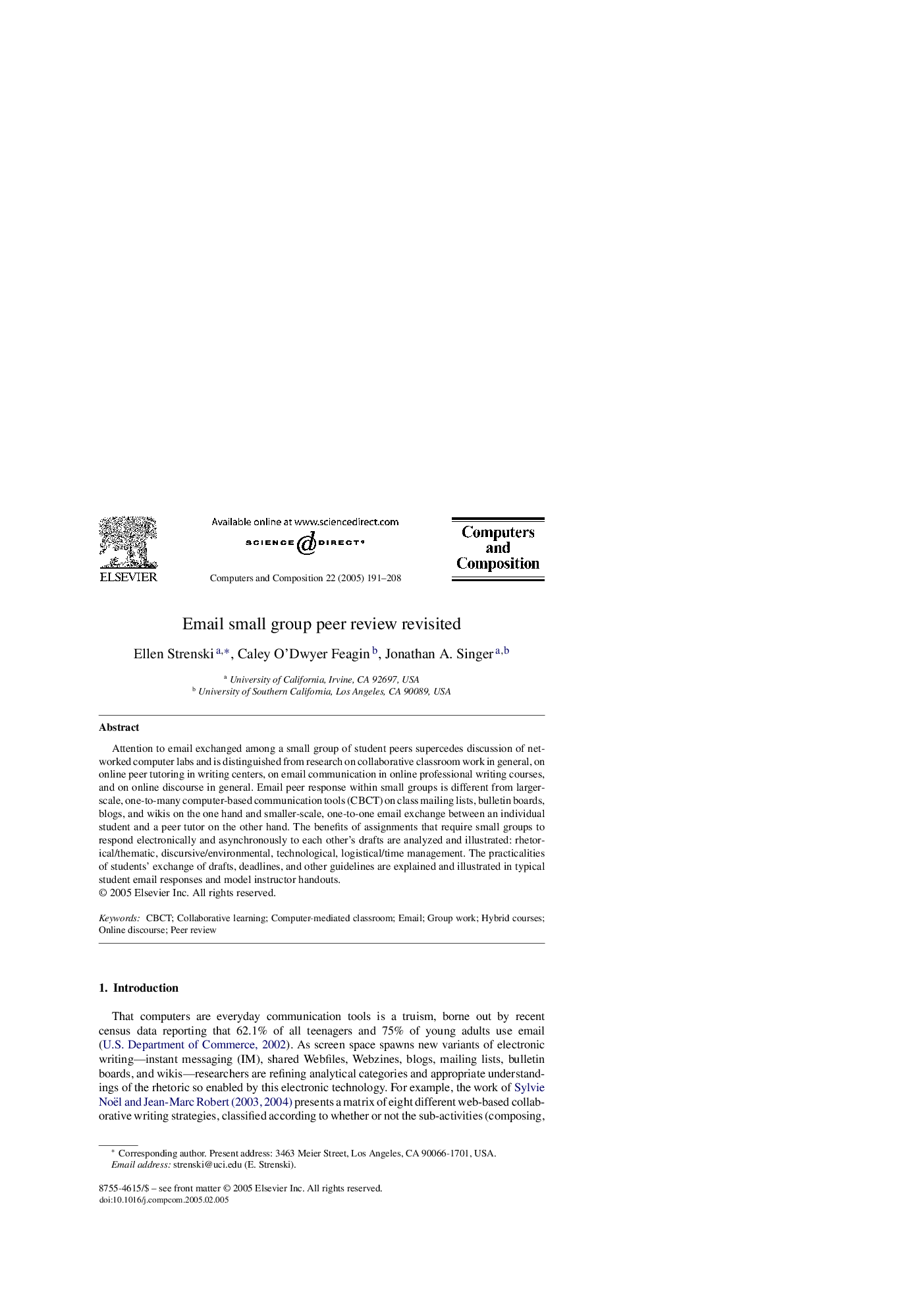| Article ID | Journal | Published Year | Pages | File Type |
|---|---|---|---|---|
| 10312111 | Computers and Composition | 2005 | 18 Pages |
Abstract
Attention to email exchanged among a small group of student peers supercedes discussion of networked computer labs and is distinguished from research on collaborative classroom work in general, on online peer tutoring in writing centers, on email communication in online professional writing courses, and on online discourse in general. Email peer response within small groups is different from larger-scale, one-to-many computer-based communication tools (CBCT) on class mailing lists, bulletin boards, blogs, and wikis on the one hand and smaller-scale, one-to-one email exchange between an individual student and a peer tutor on the other hand. The benefits of assignments that require small groups to respond electronically and asynchronously to each other's drafts are analyzed and illustrated: rhetorical/thematic, discursive/environmental, technological, logistical/time management. The practicalities of students' exchange of drafts, deadlines, and other guidelines are explained and illustrated in typical student email responses and model instructor handouts.
Related Topics
Social Sciences and Humanities
Arts and Humanities
Language and Linguistics
Authors
Ellen Strenski, Caley O'Dwyer Feagin, Jonathan A. Singer,
